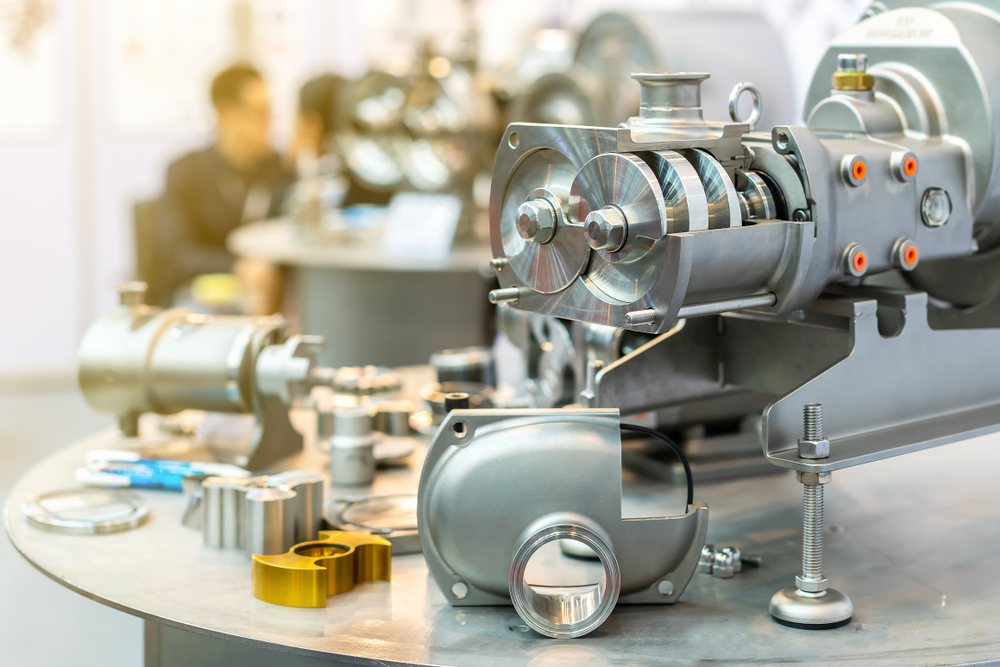Screw vacuum pumps are designed for industries seeking a reliable, safe, and cost-effective solution for processing facilities. Because of their oil-free screw design they can handle organics, inorganics, corrosives, and solvent.
The key applications of a screw vacuum pump are drying, distillation, reactor service, filtration, solvent recovery, conveying, and more. This highly efficient device can be seen in a range of industries and the article will highlight some valuable information about the device. If you are planning to invest in a vacuum pump, the information can benefit you a lot.
What is a Screw Vacuum Pump?
Screw vacuum pumps are a type of dry compressing gas transfer pumps. They feature two screw-shaped rotors inside to transfer gas. The dry screw vacuum has become one of the most popular technologies for vacuum applications across a wide variety of industries.
These types of pumps are often used as oil-free pumps in high vacuum systems. Screw vacuum pumps do not require oil or water for lubrication or sealing when in vacuum stages. It is a dry vacuum system that abolishes pollution, affluent generation, and high treatment costs.
How Does a Screw Vacuum Pump Work?
The mechanism of a screw vacuum pump is a little bit complex than a traditional pump. This is the reason it is preferred in the advanced processing of distillation. They are positive displacement pumps that feature two screw-like non-contacting rotors inside. Each of the screw-shaped rotors spins in opposite directions. The rotation of the rotors forces the air or vacuum inside to move along the rotors.
Once the trapped air or gas inside moves, the air compressed and discharged towards the opposite direction. This ensures less pressure on the vacuum pump and minimal equipment overhaul.
Oil-Sealed Screw Pump
A screw vacuum pump can either dry or oil-sealed. Screw vacuum pumps with oil seal use oil for sealing, lubrication, and cooling. If you are planning to install the pump to operate rough vacuum devices, oil-sealed screw pumps can be an excellent choice.
Dry Screw Pumps
Dry screw pump is another variant of screw vacuum pumps. These types of pumps do not require oil for lubrication or sealing in the chamber. They are air-cooled and do not emit oil which enables efficient functioning of the screw pumps. And the best part is that they can create a higher vacuum than screw pumps with oil seals.
Application of Screw Vacuum Pumps
Many industry applications can get benefited from a screw vacuum pump. You can use the pump for applications like packaging, drying, cleaning, woodworking, pick and place and many other applications. You can also find screw vacuum pumps in steel degassing plants, metallurgical systems, food processing, packing, and freeze dryers.
Also, screw vacuum pumps can be seen in large-scale coating projects like architectural glass coating. Such pumps can also be used for the regeneration of larger cryopumps.
Advantages of Using Screw Vacuum Pumps
Screw vacuum pumps come with many advantages. They are efficient, reliable, and cost-effective. Have a look at some noteworthy advantages of having a screw vacuum pump.
- High robustness
- High pumping speeds
- Adjustable
- High tolerance against dust and vapor
- Frictionless rotation
- Internal compression makes it highly efficient
- Low operational costs
- Minimal maintenance
- Can be optimized easily
- Frequency converted function
- Energy-efficient
- Safe and reliable
Apart from industrial applications, screw vacuum pumps are now used in large-scale scientific experiments. This were the information you needed to learn about a screw vacuum pump. If you are planning to invest in such a pump, we suggest you find the best brand and product to get satisfactory outcomes.


